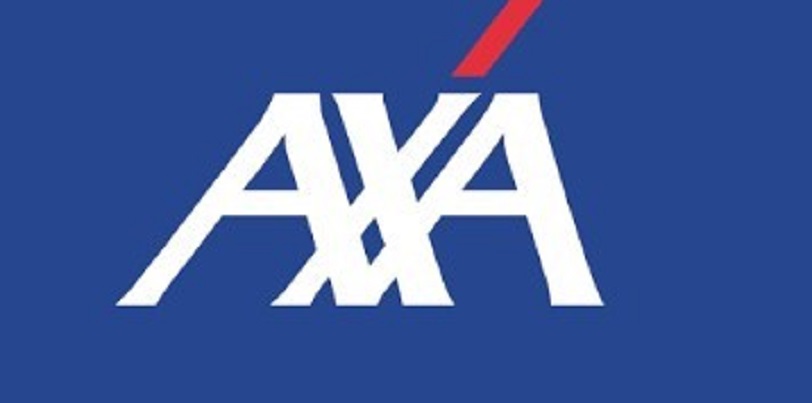Health
Nigeria Yet to Allocate 15% of Budget to Health as Promised—WHO

By Adedapo Adesanya
Almost 22 years after pledging to set a target of allocating at least 15 per cent of their annual budget to improve the health sector, the World Health Organization (WHO) has declared that Nigeria is still far from meeting the goal.
In April 2001, heads of state of African Union countries met in Abuja and pledged to set a target of allocating at least 15 per cent of their budget to the health sector.
In commemoration of this year’s World Health Day, which coincided with the 75th anniversary of the establishment of WHO, the Abuja Declaration on improving the health sector was revisited, and many setbacks remained.
April 7 every year was dedicated by the United Nations as World Health Day, and this year was themed, Health for All -Strengthening Primary Health Care to Build Resilient Systems.
Speaking around the declaration made by the then Olusegun Obasanjo administration, Dr Walter Mulombo, WHO Country Representative to Nigeria, explained that even after successive governments, “today, we are still far from achieving the target.’’
Dr Mulombo advocated more funding of the health sector to meet the said target, saying the sector was not adequately funded, compared to areas such as defence, and army, among others.
According to him, health is a human right and not a luxury or consumable, the more politically wise decisions the country makes now will benefit this nation.
“We need to start talking about human rights violations because it is not acceptable for any child to miss a vaccine,’’ he said.
He said that some areas where the organisation accessed showed that 80 per cent of the money went into tertiary hospitals.
According to him, primary healthcare is where 80 per cent of the population in the communities get their first exposure to healthcare services.
“The spending itself is distorted. That is the biggest challenge that has generated everything that we have seen.
“Lack of adequate budget to prepare responses to a pandemic, for instance, we have to struggle in many places,’’ he said.
According to him, the main challenge is the way health is featured as a political choice, and unfortunately, many governments do not live by the standard.
“Many countries continue to consider health as a luxury or something that is costing the government money whereas it should have been taken like an enabling factor for economic and socio-economic development,’’ Mr Mulombo said.
He said it was worrisome the way countries were dealing with social determinants of health, factors like socioeconomic status, education, neighbourhood and physical environment, employment, and social support networks and access to health care.
According to him, addressing social determinants of health is important for improving health and reducing longstanding disparities in health and healthcare.
Dr Mulombo further advocated more facilities with dialysis machines and more expensive equipment to combat the noncommunicable diseases as such was part of the organisation’s challenges.
He said that the organisation also had the challenges of demographic transition because the facilities that were used during the colonial period were still the same in Africa, although It may be possible that Nigeria had the same situation.
“The country is not expending in the space of demographic transition, and the way the population is increasing, Nigeria is projected to have more than 400 million population by 2040, 2050,’’ he said.
Dr Mulombo said that there was also the problem of how the county prepares for the response to any big outbreaks of pandemics.
He said the COVID-19 pandemic was not expected and as such caused havoc in many counties.
“The health body is still expecting the flu pandemic and has been preparing for it.
“When the COVID-19 pandemic hit the world, no country was ready, not even the US or the UK, and yet we have International Health Regulations and Global Health Security Agenda.
“The way we prepare was a challenge, and the other one was that the demographic transition and the prominence of disease civilisation, non-communicable diseases, our health facilities are not prepared to face these challenges,’’ he said.
The International Health Regulations (IHR) 2005 is a legally binding agreement of 196 countries to build the capability to detect and report potential public health emergencies worldwide.
It requires that all countries have the ability to detect, assess, report, and respond to public health events.
The Global Health Security Agenda (GHSA) is a global effort to strengthen the world’s ability to prevent, detect, and respond to infectious disease threats.
According to him, there is a need for the community to play their roles in identifying their needs and in providing the service to address the challenges.
Health
SpecSMART Eye Clinic Takes Affordable, Quality Care to Ikeja, Environs

By Modupe Gbadeyanka
The dream of residents of Ikeja and its environs enjoying affordable and quality care has now become a reality as a result of the opening of a new branch of SpecSMART Eye Clinic in the Opebi area of the capital of Lagos State.
SpecSMART Eye Clinic, a leading provider of optometry services in Lagos, commenced operations in Nigeria’s commercial capital in 2022.
Since then, it has been offering top-notch eye care to residents of the metropolis, especially those living on the Island. It has built a strong reputation for delivering high-quality primary eye care and optical products.
However, to extend its services to Lagosians living on the Mainland, it has now opened a new branch in Ikeja, reinforcing its commitment to providing accessible, affordable eye care to a wider community.
Business Post gathered that the clinic’s state-of-the-art services are supported by a team of skilled optometrists and opticians, utilizing cutting-edge digital equipment.
The new Ikeja location will offer a wide range of services, including Automated Eye Examinations using advanced digital equipment for precise diagnosis and personalized care.
In addition, clients will enjoy on-the-spot lens glazing for single vision, bifocals, and varifocals, with additional lens coatings, with services to be rendered seven days a week from 9 am to 9 pm on Mondays to Saturdays, and on Sundays and public holidays from 10 am 7 pm.
Also, the clinic has over 950 frames, ranging from affordable home brands to premium designer options, priced from N18,000, and has flexible appointment scheduling with 24-hour online booking via SpecSMART’s website.
The facility has partnerships with leading HMO providers in the country and offers glaucoma management and other essential eye health services.
According to the company, its introductory packages start from N30,000 and include consultation, frame, and single-vision lenses.
“With the opening of our Ikeja branch, we are ready to serve more individuals who need accessible, cost-effective, and reliable eye care.
“Our aim is to create a positive impact in Nigeria’s optometry sector by combining advanced technology with a patient-centred approach,” the Practice Head and Medical Director of SpecSMART, Dr Adaeze Nwoko, stated.

Health
FG Begins Vaccination Against Mpox in FCT, Six States

By Adedapo Adesanya
The Federal Ministry of Health and Social Welfare through the National Primary Health Care Development Agency (NPHCDA) has commenced the vaccination against Monkeypox, now known as Mpox.
Business Post reports that Bayelsa, Rivers, Cross River, Akwa Ibom, Enugu, Benue, and the Federal Capital Territory, were selected as pilot states for the vaccination.
An average of 631 persons are expected to be vaccinated across the seven states with two doses of the Mpox vaccine. A buffer for 50 persons will be kept at the national in case of an upsurge in other states.
NPHCDA in a statement posted on its verified X account confirmed the exercise, stressing that the vaccination will help to protect communities and safeguarding health of the people.
In a related development, according to the latest update by the Nigeria Centre for Disease Control (NCDC), there are 1,442 suspected cases of Mpox from 36 states and the Federal Capital Territory, while the number of confirmed cases of the infection was 118 from 28 states and the FCT.
“To prevent the spread of Mpox, we strongly advise the public to avoid contact with animals that may carry the virus, including sick or dead animals in affected areas, avoid handling materials that have been in contact with infected animals, limit unnecessary physical contact with individuals who are infected, practice frequent handwashing with soap and water, and ensure that animal food products are thoroughly cooked before eating.
“It’s also important to use protective clothing and gloves when handling sick animals or their tissues. Similarly, health workers are advised to follow standard safety protocols including droplet precautions when treating patients, use protective equipment including masks, gloves, and gowns, during patient care, and be vigilant for symptoms of Mpox, especially fever and rash, among other measures.”
Health
AXA Mansard Health Partners LUTH in Blood Donation Drive

By Aduragbemi Omiyale
Over 250 pints of blood have been donated by AXA Mansard Health to the Lagos University Teaching Hospital (LUTH), Idi Araba.
The blood was donated by more than 100 employees of the leading health insurance company in Nigeria through its volunteering programme tagged AXA Hearts in Action.
The initiative is part of the company’s blood donation drive aimed at contributing to positive societal and environmental impacts through employee volunteering, and expertise related financial support and in-kind donations.
According to the Chief Client Officer of AXA Mansard, Ms Rashidat Adebisi, “Through the AHIA, our employees do not just give time to great causes; we work together for a better future.”
“We share our time, knowledge and expertise as a people with a shared purpose of acting for human progress by protecting what matters through initiatives like this,” she added.
Ms Adebisi said the blood drive is a shining example of the philosophy in action, where collective contributions serve as a reminder that true impact often involves giving more than just money. It’s about putting one’s heart in action – an idea embedded in AXA’s corporate culture.
On his part, the chief executive of AXA Mansard Health Limited, Mr Tope Adeniyi, said with hospitals frequently experiencing blood shortages, events like these serve as a lifeline for patients in need.
“We are proud to contribute to the local healthcare sector and provide much-needed support to hospitals such as LUTH, ensuring that they have resources essential to saving lives,” he added.
Also commenting, the Head of Corporate Services and Public Relations at LUTH, Omolola Olubukunola Fakeye, thanked the firm for the “generous support,” which has made a “meaningful difference to our blood bank and ultimately to the lives of patients.”
“Blood donations are invaluable in many critical treatments, and initiatives like AXA Mansard’s blood drive bring immense relief to healthcare system.
“We are sincerely grateful for this partnership and the dedication of AXA Mansard’s employees,” Fakeye stated.
AXA Hearts in Action operates globally, she urging AXA employees everywhere to engage with and give back to their communities.
Through diverse projects – from health initiatives like this blood drive and medical outreaches to environmental efforts like the AXA Week for Good “Trash-to-Treasure” waste management project – AXA staff have opportunities to make a lasting difference on issues that matter.
For AXA Mansard, every act of social service brings them closer to the communities they serve, helping build a world where giving back is not only about charity but about lasting, positive change.
-

 Feature/OPED5 years ago
Feature/OPED5 years agoDavos was Different this year
-
Travel/Tourism8 years ago
Lagos Seals Western Lodge Hotel In Ikorodu
-

 Showbiz2 years ago
Showbiz2 years agoEstranged Lover Releases Videos of Empress Njamah Bathing
-

 Banking6 years ago
Banking6 years agoSort Codes of GTBank Branches in Nigeria
-

 Economy2 years ago
Economy2 years agoSubsidy Removal: CNG at N130 Per Litre Cheaper Than Petrol—IPMAN
-

 Banking2 years ago
Banking2 years agoFirst Bank Announces Planned Downtime
-

 Sports2 years ago
Sports2 years agoHighest Paid Nigerian Footballer – How Much Do Nigerian Footballers Earn
-

 Technology4 years ago
Technology4 years agoHow To Link Your MTN, Airtel, Glo, 9mobile Lines to NIN



















